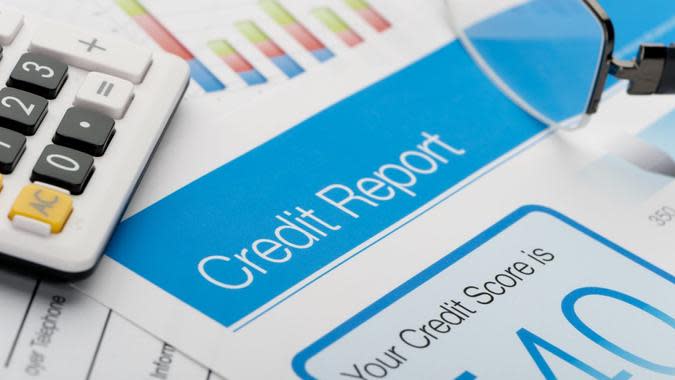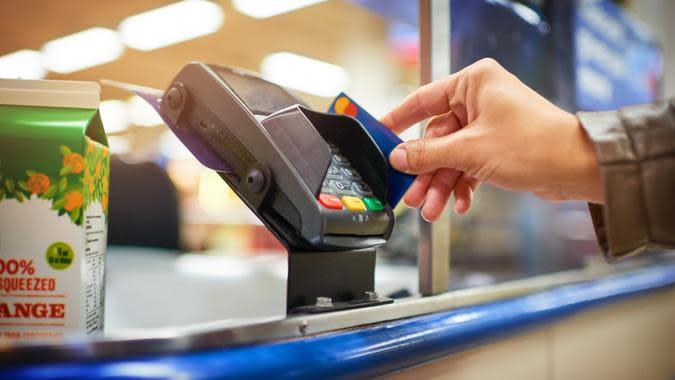10 Things Most Americans Don’t Know About Credit Cards

Credit cards are so convenient that they are part of daily life for many Americans. Given that fact, it's perhaps surprising that there are so many common misconceptions about credit cards floating around.
See: 22 Side Gigs That Can Make You Richer Than a Full-Time Job
Find: 10 Things You Always (and Never) Should Buy at the Dollar Store
Seeing as your credit score and how you manage your credit can affect so many areas of your life, from applying for a car loan or a home mortgage to qualifying for an apartment, it's important to know the facts about credit cards. Here's a look at 10 common misconceptions about credit cards and the truths behind each myth.

Your Credit Report Shows as Debt-Free If You Pay Your Balance in Full Every Month
Paying your entire credit card statement in full every month is a sound financial strategy. However, if you want to appear debt-free to lenders, you'll have to alter the timing of your payments. Every month when you get a credit card statement, your creditor reports that balance to the credit reporting agencies. Even if you pay the balance in full after getting your statement, according to your credit report, you're still carrying that balance. To appear debt-free to your creditors, you'll need to pay off that balance in full before your statement closing date.
POLL: What Do You Think of Elon Musk Buying Twitter?

Applying For a Store-Branded Credit Card Won't Hurt Your Score
There's a common misconception that opening store-branded credit cards is not the same as opening a general credit card from an issuer like Chase Bank. Since these types of cards can typically only be used at the store where they're issued, many consumers mistakenly believe that they are "private issue" credit cards or somehow don't end up in the traditional credit reporting universe. The truth is that store credit cards are issued by banks as well, and they are reported to the credit agencies just like any other type of credit card.

Closing Unused Accounts Raises My Credit Score
From a financial planning standpoint, it's true that you shouldn't have more credit cards than you need. However, if you go about canceling your unused credit cards, you might end up paying a price when it comes to your credit score, in two ways. First, a big part of your credit score comes from your credit utilization or the percentage that you're using of your entire amount of available credit. If you carry a balance on some cards and cancel your other ones, your credit utilization percentage will jump, thereby lowering your credit score. Second, the average age of your credit accounts is another factor affecting your credit score, although not as significantly as your credit utilization. If you close long-standing accounts and lower the average age of your credit lines, your credit score will take another hit.

You Must Carry a Balance To Improve My Credit Score
A very common misconception about credit cards is that you must carry a balance to improve your credit score. This mistaken belief no doubt arises from the truth that you must use your credit cards if you're to generate positive score reporting. In fact, the single biggest component of your FICO credit score is your payments history, comprising a whopping 35% of your entire score. However, just because you'll need to use your credit cards and pay them off to improve your score doesn't mean you need to carry an outstanding balance. In fact, another big component of your credit score is the amount of debt you owe, so carrying a balance will actually trim points off your score, not add to it.

All Credit Cards Charge More or Less the Same Interest Rate
Most credit cards are similar in terms of how they operate. You're extended a credit line, and every month that you make charges you're expected to pay back at least a minimum amount. Whatever you don't pay off in full triggers an interest charge. However, the amount of interest that a card charges can vary greatly. While the average interest rate for all credit cards sits at 14.54%, according to the St. Louis Fed, credit card issuers charge everything from the low single digits to rates approaching 30%. If you know you're going to be carrying a balance, don't assume that you'll be charged a low rate. Check with your card issuer so you know what the damage will be ahead of time.

It's OK To Carry a Balance If You're Earning Credit Card Rewards
The battle for consumer credit card spending has gotten very competitive, and many card issuers now offer lucrative sign-up bonuses and ongoing perks to attract customers. Sign-up bonuses of 100,000 points or miles are now not that unusual, and points multipliers on everything from grocery store purchases to travel and office expenses can make the proper use of a rewards credit card quite beneficial for the cardholder. However, if you have to keep an outstanding balance on your card in order to reap those rewards, you're likely paying far more in interest costs than you're earning in rewards.

Paying Off Delinquent Debts Erases Them From Your Credit History
Making late payments on your credit cards is one of the most damaging things you can do to your credit score, short of filing for bankruptcy. For one thing, your credit score will take a significant hit, sometimes in excess of 100 points. But the damage is much longer-lasting than that. Even if you get back on your feet and pay off your delinquent debts in full, you can't erase the fact that you were past due in the first place. Late payments and account charge-offs stick around on your credit report for a full seven years, even if you pay them off in full. While the damage done to your score will decrease over time, you can't hide the fact that you missed those payments until they naturally fall off your report after nearly a decade.

It Never Makes Sense To Pay an Annual Fee To Get a Credit Card
Credit card companies already earn money via interchange fees and interest charges on consumers, so it doesn't seem right that you should also pay an annual fee to own one. However, in some cases, paying an annual fee on a credit card will give you access to numerous features and benefits that will far outweigh the cost of owning the card. Most annual fee cards, for example, offer generous sign-up bonuses that more than pay for the first year of card ownership. On an ongoing basis, various perks like free baggage, club membership, and/or upgrade seating on airlines can be worth far more to a frequent traveler than the cost of an annual fee. Not all perks provide the same value to all consumers, however, so be sure to only pay for credit cards that provide you with perks that apply to your personal lifestyle.

Credit Reports Are Always Accurate
Credit reports are official records of your financial history, so it makes sense that many Americans believe that they are always accurate. The reality is that this couldn't be further from the truth. According to a Consumer Reports investigation conducted in 2021, more than one-third of American consumers found at least one error in their credit reports. That's a staggeringly high number for an important financial document that can affect the cost of everything from your auto loan to your home mortgage. The lesson here is to check your credit reports frequently to ensure that your information is accurate.

All You Need Is a Single Credit Card
Some Americans believe that owning a single credit card is the right way to go when it comes to credit scoring and managing their finances. But the truth is that having a mix of credit is the best way to help boost your credit score, and having more than one credit card will often maximize the rewards you can earn. Your credit mix is actually its own category within your FICO score, amounting to 10% of the overall score. If you can show creditors that you can responsibly handle credit of different types, such as installment loans, credit cards and retail accounts, your score will improve. Similarly, owning different types of credit cards that provide rewards in different areas, such as groceries, gasoline or streaming services, can maximize the total benefit you receive from your cards.
More From GOBankingRates
This article originally appeared on GOBankingRates.com: 10 Things Most Americans Don’t Know About Credit Cards
